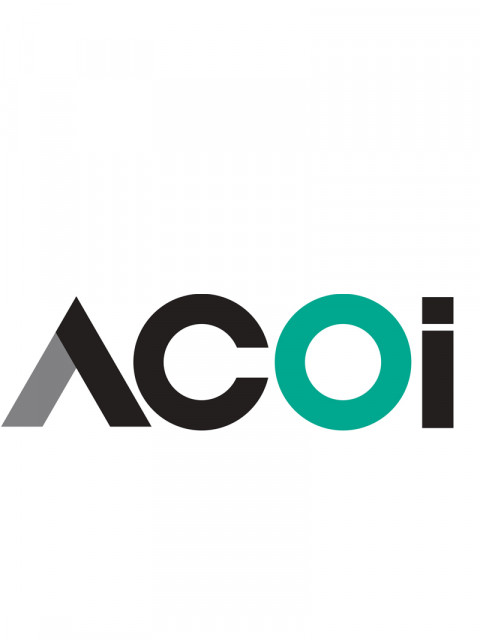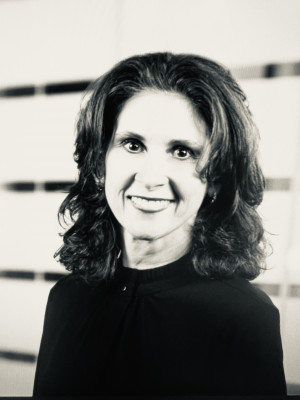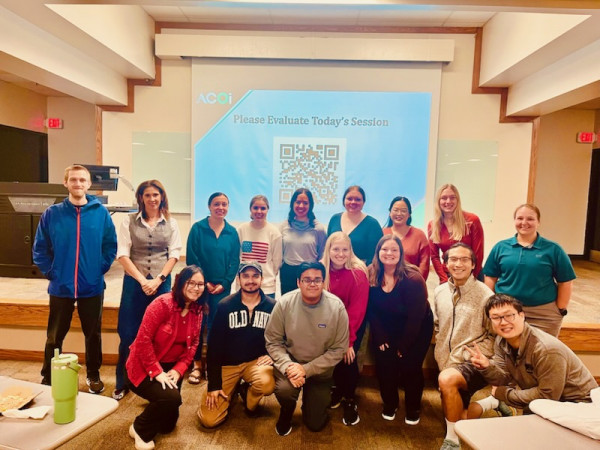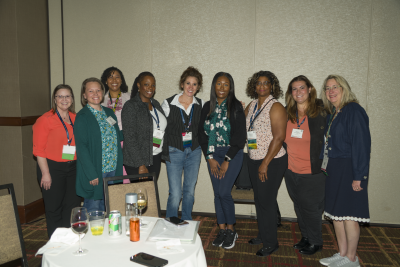
Charlene LePane, DO, MBA, FACOI: Igniting Positive Change through Innovation
by ACOI
January 9, 2025
 At ACOI 2024, a lecture on AI and Medicine drew a great deal of attention – unsurprisingly, given the rapid nature with which AI has grown and found its way into different fields, including health care. That talk was given by Charlene LePane, DO, MBA, MSPH, FACOI, FACG, an internist, gastroenterologist, and ACOI Board Member who serves as Chief Medical Information Officer (CMIO) at AdventHealth-Central Florida Division.
At ACOI 2024, a lecture on AI and Medicine drew a great deal of attention – unsurprisingly, given the rapid nature with which AI has grown and found its way into different fields, including health care. That talk was given by Charlene LePane, DO, MBA, MSPH, FACOI, FACG, an internist, gastroenterologist, and ACOI Board Member who serves as Chief Medical Information Officer (CMIO) at AdventHealth-Central Florida Division.
It might come as a surprise that a physician with a background in something other than technology would offer an overview on AI or specialize in health informatics. But for Dr. LePane, it was almost a natural next step – one that came about thanks to her sense of curiosity and hunger to learn.
“When I was asked to [speak on] that, I was thrilled to do so. Because, at least in my career as a medical information officer, we are seeing this unfold at such a rapid speed, where there’s so many different applications that we can use to really improve the efficiency of our documentation. And moreover, really to improve the outcomes for our patients.”
A Background in Learning through Exploration
Dr. LePane’s background in osteopathic medicine is similarly driven by variety and knowing this makes it less surprising that she’s provided innovative ideas to her colleagues, peers, and patients. She was fascinated by medicine and the human body from a young age, and after going into nursing, discovered osteopathic medicine while preparing for the MCAT. An academic advisor first made Dr. LePane aware of osteopathic medical schools, and an interview offer for one of those programs prompted a deeper dive into the difference between osteopathic and allopathic medicine.
“What I learned was that osteopathic medicine offered the opportunity to step back and look at the patient from head to toe and treat them as a whole – really understanding their emotional state, their spiritual being, their dietary habits, their sleep habits – all of the things that make us human and impact our health. That’s what I was most attracted to.”
Internal Medicine was another surprising interest, but one that proved incredibly fitting. “What I loved about Internal Medicine from day one was how it gave me the opportunity to break up the monotony of sitting in one place,” she said. “I very much like to have variety, and the lifestyle of an internist felt like it matched. Having diverse things to study – getting to learn a little about a lot of different things – felt more like a jigsaw puzzle.”
An interest in procedures led to Dr. LePane’s fascination with gastroenterology, and she began to envision how to engage that curiosity alongside practicing as an internist. “It met my desire to have variety in my work: to see acute manifestations of disease in hospital settings, and to help patients feel better – and also to do procedures. It really stimulated my intellectual curiosity.”

Dr. LePane at ATSU KCOM as a Visiting Professor.
Streamlining Support for Patients – and Providers
That sense of intellectual curiosity brought Dr. LePane to health informatics and AI, and to using both to work in a future-oriented and patient-centered way. She became a subject matter expert in AI out of a desire to help herself and her colleagues be more efficient in their work and get to live their lives off the clock. In delving into that topic, she recognized a growing need for physicians to understand and apply it more thoroughly.
“I was really interested in trying to be an innovative thinker – and I was trying to leverage our technology to improve our lives as gastroenterologists,” she said. “I was one of many who would bring my work home each night, and that was a problem for my home life and my overall health. When I offered to serve as a subject matter expert, I was thinking, ‘How can I help my entire group leverage these tools to improve our lives, so we have time with our families at night?’ That’s really important, to [be able to] disconnect from work and enjoy your life. So, it was a desire to help my organization and colleagues.”
Taking on this role ultimately led to becoming AdventHealth-Central Florida Division’s CMIO. “The informatics role was presented to me in a time when I was least expecting it – where our system needed overhauled at AdventHealth. Currently, we have 54 hospitals across nine states in the United States. And about 3 years ago, we made a decision to move from one electronic medical record called Cerner over to Epic.” This overhaul needed to be performed strategically to avoid overwhelming the system with the massive amount of information involved.
Conducting this involved a focus on communication. Dr. LePane sees the role of CMIO as one of conduit between the physician or healthcare provider and the technology, and that made this overhaul all the more effective: it was about allowing patients to more quickly and clearly see and understand their health information.
“Now,” she said, “our electronic medical records are patient-centric and face forward – oftentimes patients will have information in hand before I even have the chance to communicate it, which increases trust. It’s a win for everybody in healthcare. Moving forward, this offers an opportunity for patients to gain trust again in healthcare, so they can see what we’re doing and that it’s not hidden behind a curtain.”
The benefits, of course, extend to Dr. LePane’s peers and fellow physicians. “As a CMIO,” she said, “I have an opportunity to really highlight the benefits of healthcare tech to help physicians. I’ve seen the lightbulb go off for so many physicians who see you can use this to your advantage – they get to gain back hours in their day, to have dinner with their families, to see their kids grow up.”

Dr. LePane with fellow ACOI Board member Laura Rosch, DO, FACOI.
An Encompassing Embrace of Change
The lecture on AI and Medicine wasn’t the only talk Dr. LePane gave at the Annual Convention. Just as future-oriented and eye-opening was her lecture on the gut microbiome. Reflecting on that topic, she said, “I don’t know if people are aware that 80% of our immune system resides in the gut. The gut microbiome is super important in regulating immune responses. What I try to do [as a physician] is lead by example, and I say that just because I refrain from things that are not good for my body – I try to tell patients that you truly are what you eat.”
To speak with Dr. LePane about this subject is to understand that her willingness to lead by example is something she lives out in all areas, GI health and technological advancement alike. Her embrace of the future is inspiring, because it shows that progress can mean bringing people along with you.
“I’m excited about where GI and AI intersect, and about where we could be in 10 years. For GI, we have genetic and molecular clinical data, and gastroenterologists can offer more personalized treatment to patients based on that. All of these tests you see where you can check your genetics are becoming streamlined, so physicians can use those tools to identify patients that will have complications and get ahead of that.
“I’m really excited because there’s just so many ways AI and informatics intersect with medicine, and specifically GI. I’m so glad I have one foot in informatics and one in GI. It’s an opportunity to really help colleagues and make a pretty big impact.”

Dr. LePane at the Women Physicians Discussion Group at ACOI 2024.

